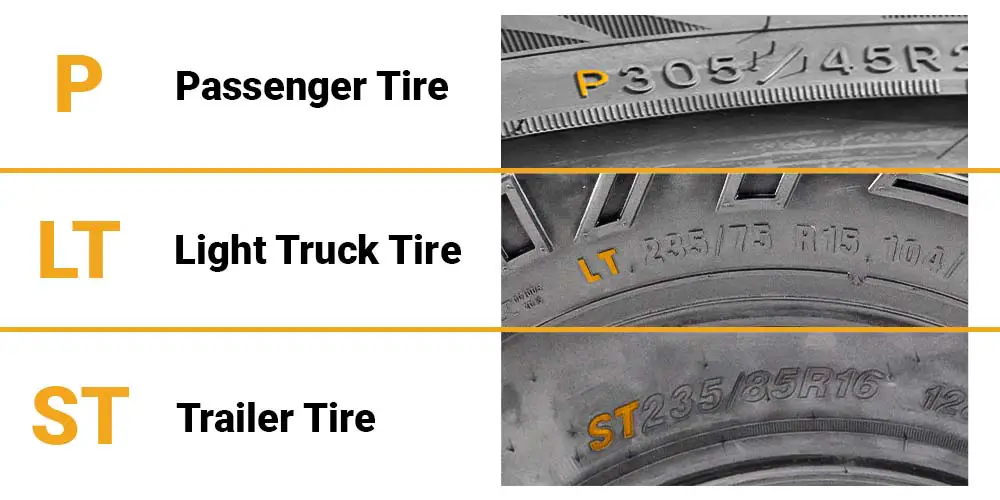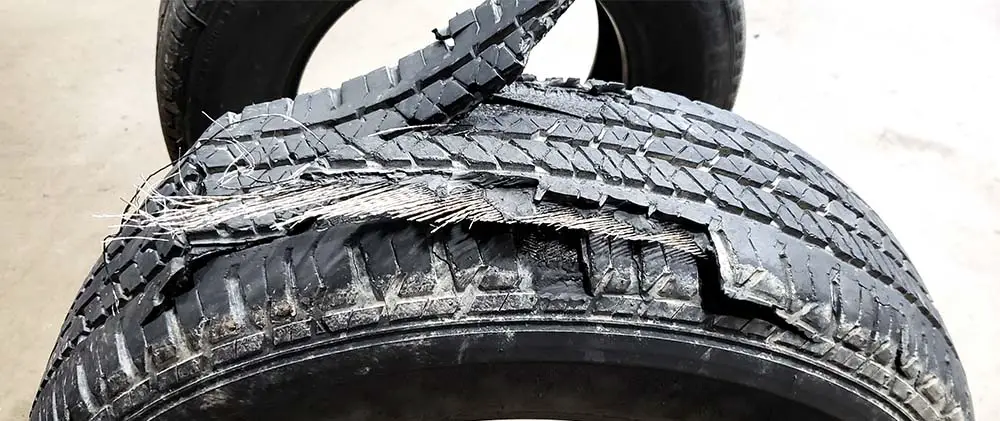Can you put trailer tires on a car? It is not recommended to put trailer tires on a car. Trailer tires are designed for trailers and lack the necessary performance features, such as flexibility and speed ratings, required for safe driving on passenger vehicles.
Tires are the foundation of any vehicle’s safety and performance. Without the right tire for the job, the vehicle’s handling, braking, and overall stability can be severely compromised. While standard passenger car tires are designed to meet the dynamic needs of everyday driving, trailer tires (often referred to as ST, or Special Trailer, tires) are built for a very different purpose. These tires are engineered to carry heavy loads over long distances while providing minimal friction and resistance.
But what happens when you consider swapping out a car tire with a trailer tire? This is where the confusion and potential safety concerns arise. Trailer tires, while durable, are not designed to withstand the same dynamic forces that a passenger car tire must. Trailer tires are typically built for straight-line stability, whereas car tires need to handle turning, braking, and various road conditions.
In this article, we’ll explain the design differences between trailer tires and car tires, the risks of using trailer tires on a car, and why it’s essential to always use the right tire for the vehicle’s specifications.

Contents
Difference Between Trailer Tires and Car Tires
Trailer tires and car tires are built for very different purposes, and knowing these differences is key to making the right choice for the vehicle. In this section, we will explore the unique features of each tire type, including design, performance, and safety considerations.
1. Design and Construction: Why Trailer Tires Aren’t Built for Cars
The first major difference between trailer tires and car tires is the design. Trailer tires are often labeled as “ST” (Special Trailer) tires, indicating that they are specifically designed to meet the needs of trailer applications. These tires are made with a much stiffer sidewall, which helps to support the heavy load that trailers carry. In contrast, car tires have a more flexible sidewall that allows them to handle the dynamic forces of turning, braking, and accelerating.
- Sidewalls: Trailer tires are built with more rigid sidewalls to support heavy loads but are less flexible than car tires, which are designed to handle turning forces and the dynamic weight of the vehicle.
- Tread Patterns: The tread on trailer tires is generally designed for minimal rolling resistance to maximize the lifespan when driving long distances in a straight line. Car tires, on the other hand, have tread patterns designed to provide traction, enhance braking, and improve handling for both wet and dry road conditions.
- Speed Ratings: Trailer tires are typically rated for lower speeds, with most rated for speeds up to 65 mph, whereas car tires are rated for higher speeds, typically 85 mph or more, depending on the type of car.
2. Load Capacity and Inflation Pressure
Trailer tires are designed to carry loads that are much heavier than the average weight of a passenger vehicle. They are inflated to higher pressures to handle these loads, often at a PSI (pounds per square inch) of 60-80. In comparison, car tires are usually inflated to a lower PSI (around 30-35 PSI) for regular driving.
- Load Capacity: Trailer tires are built to withstand high static loads without deformation. Car tires, on the other hand, must handle dynamic forces, including acceleration, turning, and braking.
- Inflation Pressure: The higher inflation pressure in trailer tires is necessary to support the weight of the trailer, but these pressures are unsuitable for the variable forces at play in a car.
Why You Shouldn’t Put Trailer Tires on a Car
Using trailer tires on a car can lead to several safety and performance issues. In this section, we’ll outline the risks involved, from compromised handling to potential tire failure, and explain why it’s essential to use the correct tires for the vehicle.
1. Handling Issues
One of the primary risks of using trailer tires on a car is the impact on handling. Trailer tires are not designed to handle the forces involved in driving a passenger vehicle, especially when it comes to cornering, braking, and accelerating.
- Poor Cornering and Stability: Since trailer tires are built for straight-line stability, they can significantly reduce the vehicle’s ability to handle turns. This can lead to dangerous understeering or oversteering, making the car harder to control, especially in emergency situations.
- Braking Problems: Car tires are designed to provide optimal traction during braking. Trailer tires, with their stiffer sidewalls and different tread patterns, won’t grip the road in the same way, which can result in longer stopping distances.
2. Increased Risk of Tire Failure
Trailer tires are not built to withstand the higher dynamic forces that car tires face. If you use trailer tires on a car, you may experience increased wear and tear, higher heat buildup, and a greater chance of tire blowouts.
- Overheating: Trailer tires are designed for lower speeds, and using them on a car can cause them to overheat when driven at higher speeds, leading to tire failure.
- Reduced Durability: Using trailer tires on a car may cause premature tire wear due to the excessive flexing of the tire’s sidewalls, which leads to cracks and eventually tire failure.
3. Legal and Warranty Issues
In some cases, using the wrong tires on the vehicle may void warranties or insurance coverage. If you install trailer tires on the car and then get into an accident, the insurance company may refuse to cover the damages because the tires were not designed for the vehicle.
- Vehicle Manufacturer Specifications: Always adhere to the vehicle’s specifications for tire types and sizes. Manufacturers design cars with specific tires in mind to ensure maximum safety and performance.

How to Choose the Right Tires for the Car
Choosing the right tires for the car is crucial for ensuring safety, performance, and longevity. In this section, we will guide you through the key factors to consider when selecting tires, including tire size, type, and the conditions they will be used in.
1. Consult Your Owner’s Manual
The best way to ensure you’re using the right tires on the car is to consult the vehicle’s owner manual. The manual will provide specific recommendations regarding tire size, speed ratings, and load capacity. Following these guidelines is important to maintaining the vehicle’s safety and performance.
2. Work with a Tire Professional
If you’re unsure about what tires are best for the car, consider consulting a tire professional. They can help you select the right tires based on the driving needs, weather conditions, and performance expectations.
3. Regular Tire Maintenance
Regardless of the type of tire you use, regular maintenance is key. This includes checking tire pressure regularly, rotating the tires, and inspecting them for any signs of damage. Proper tire maintenance ensures the car’s tires perform at their best and last longer.
Frequently Asked Questions
Here are some FAQs about using trailer tires on car –
Q1: Can I use trailer tires on my car for a short time?
A1: It’s not recommended to use trailer tires on your car, even for short distances, as it can compromise handling, safety, and cause premature tire wear.
Q2: How can I tell if a tire is a trailer tire?
A2: Trailer tires typically have “ST” (Special Trailer) markings on the sidewall, and their load rating and speed rating will differ from standard car tires.
Q3: Can trailer tires be used on any type of vehicle?
A3: Trailer tires should only be used on trailers. They are not designed to meet the dynamic needs of passenger vehicles.
Q4: Are trailer tires cheaper than car tires?
A4: Trailer tires tend to be less expensive than car tires because they don’t have to meet the same performance and safety standards required for passenger vehicles.
Q5: What should I do if I can’t find the exact tire for my car?
A5: Always consult a tire professional to ensure that the replacement tire meets your vehicle’s specifications. It’s essential to use the right type and size of tire for the car’s safety.
Conclusion
While trailer tires serve an important role in the world of trailers, they are not suitable for use on passenger vehicles. The significant differences in design, load capacity, inflation pressure, and performance make trailer tires incompatible with the dynamic needs of a car.
Always use tires that are specifically designed for the car, and consult the owner manual or a tire professional for guidance. Using the right tires not only ensures your safety on the road but also maintains the longevity and performance of the vehicle.